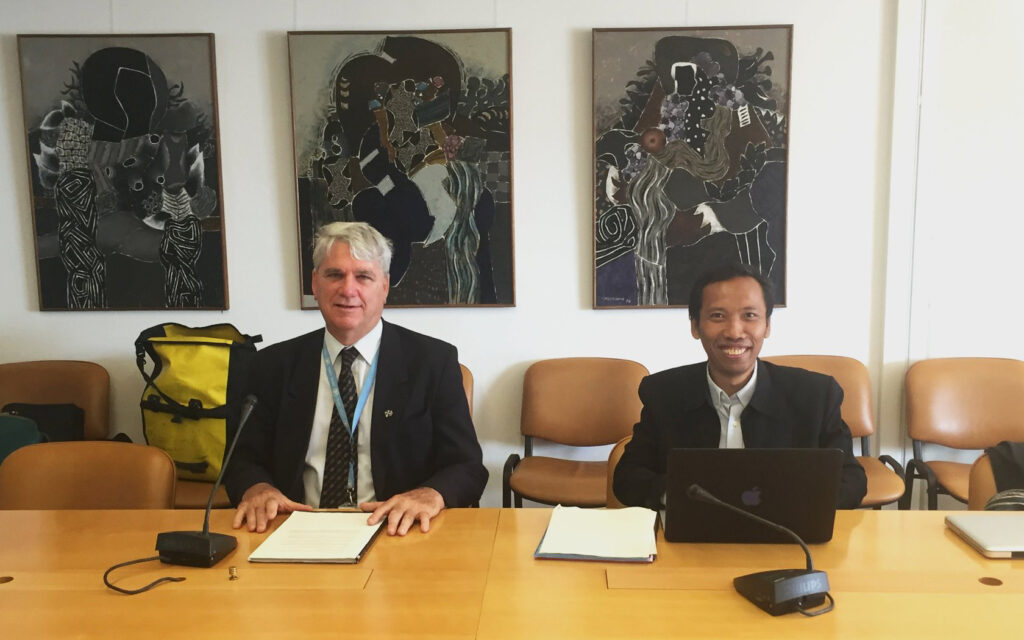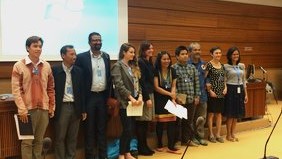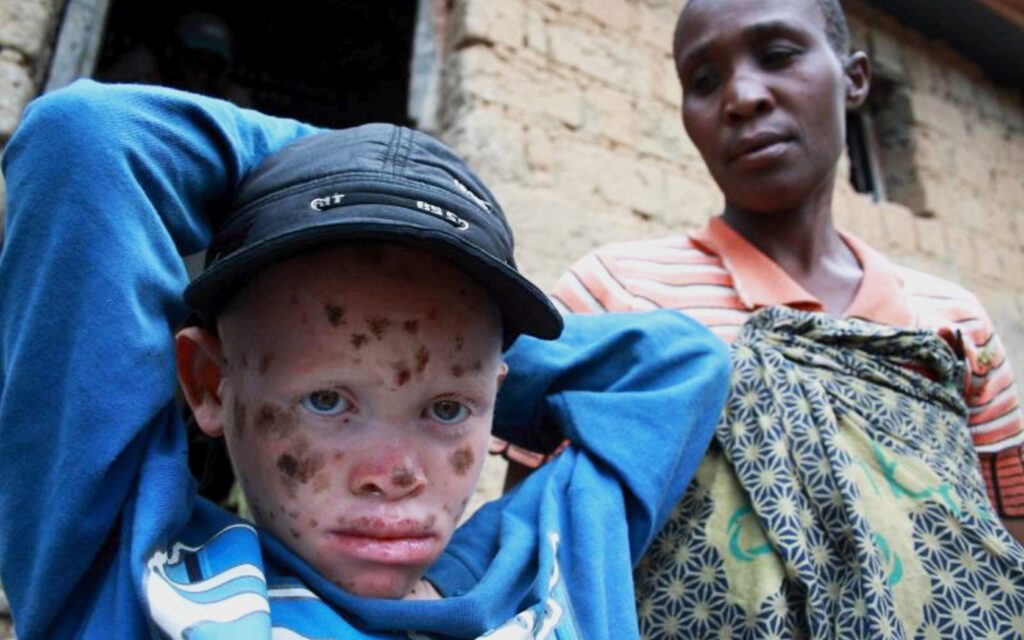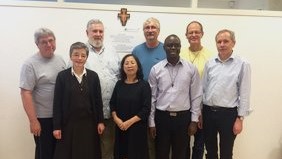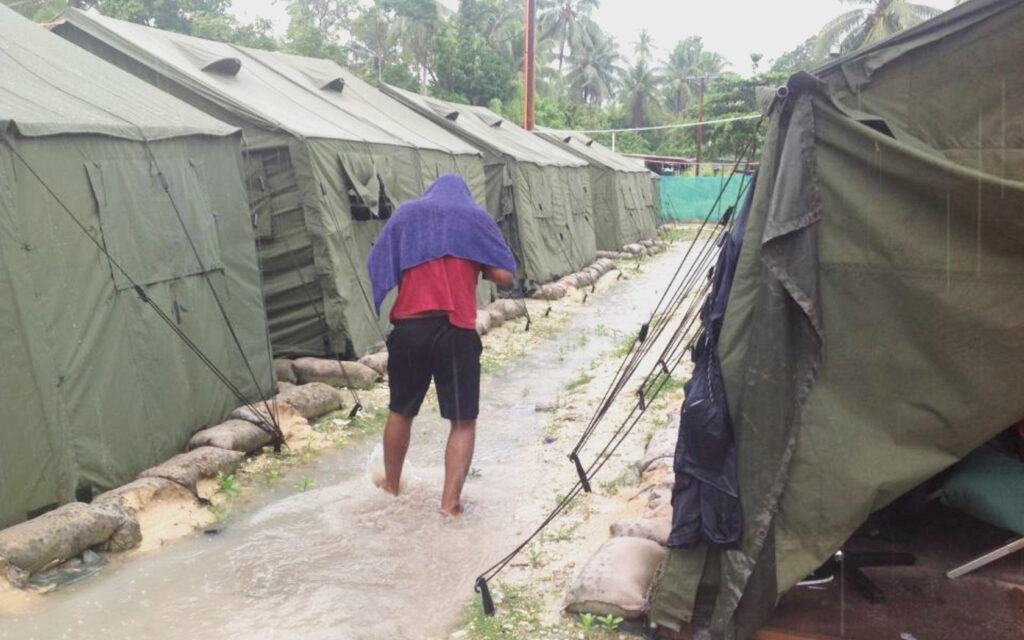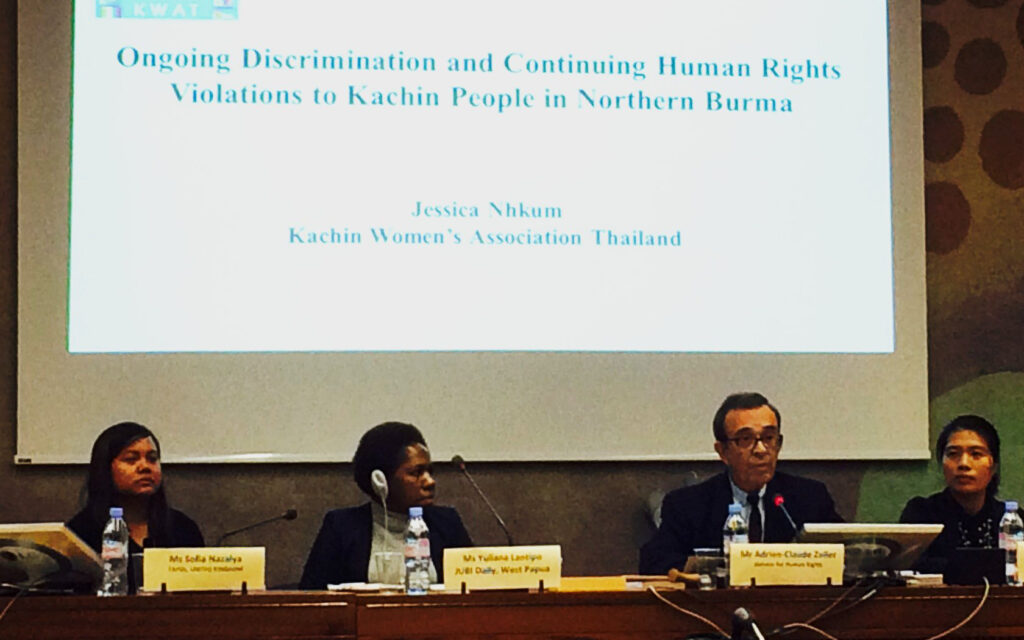The Philippines have been suffering from the consequences of aggressive extractive industry and the numerous human rights violations that are linked to it. In the region of Tampakan in South Cotabato, Mindanao, in the Philippines, the Tampakan Coooper-Gold mine owned by Sagittarius Mines Incorporated (SMI) has been trying to operate since the 1990s. But the project will directly impact watersheds, vast areas of forest, and ancestral domains that are sacred for local populations.
An estimated 5000 people, mostly indigenous, will have to be re-settled when the project starts to operate. The mining activities will also endanger food and water sources, impacting living conditions. The risks of pollution, erosion, siltation, flash floods, landslides, and other seismic geo-hazards are very high.
For these reasons, the Bla’an indigenous communities are protesting against the mining project. In response to the strong opposition of local populations, military forces and paramilitary groups have been deployed to the area and are acting in defence of the investment. The militarization has resulted in the murder of anti-mining and indigenous leaders, and other violations of human rights. The company maintains that it respects and upholds the United Nations’ Guiding Principles on Business and Human Rights, but in practice, they use military force to maintain control of the mining area.
For several years, Franciscans International (FI) has been working with Filipino NGOs and affected communities in Tampakan, in order to highlight the case at the United Nations, and call the Government of the Philippines to effectively implement its Indigenous Peoples Rights Act (IPRA Law) to protect the rights of indigenous peoples on the lands coveted by mining companies. On June 20th 2016, during the UN Human Right Council, FI partnered with Fastenopfer to organise a discussion on the impact of development projects on the displacement of indigenous peoples, using the example of the Tampakan Cooper-Gold Mine Project.
The UN Special Rapporteur on the Rights of Indigenous Peoples, Dr. Chaloka Beyani, who visited Tampakan in July 2015 and presented his report to the Council, opened the discussion by giving an account of his visit to Tampakan, highlighting the human rights violations caused by the project, and including descriptions about the government’s complicit behaviour with the mining company.
Ms. Nora Polie Sukal, a representative of the Bla’an community, testified and shared her experience of how the mining company has wreaked havoc among her tribe, causing disunity and cultural loss, not to mention unpunished human rights violations and potential environmental damage. She called for truthful implementation of the IPRA Law that is meant to protect Indigenous Peoples, for the respect of the Principles of Free, Prior and Informed Consent (FPIC), and for authentic consultation of indigenous people regarding the proposed project. Ms Sukal ended her intervention by expressing concern for her own security, fearing possible reprisal or pressure upon her return to Tampakan.
Finally, Ms Cécilia Jimenez gave an overview of the legal and policy frameworks surrounding the issue of indigenous peoples’ rights in the Philippines, explaining the need to continue putting pressure on the Filipino government to uphold its responsibilities towards its indigenous peoples.



